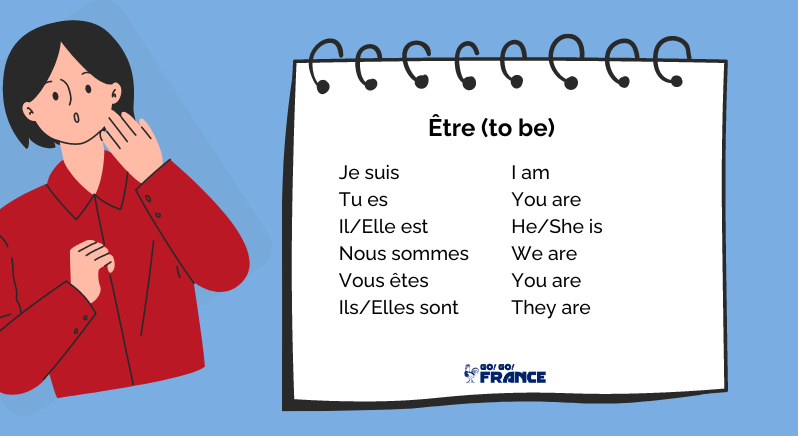When you think about the similarities and differences between French and English, you might initially focus on the differences. However, French and English share some surprising similarities that can make learning one of these languages easier if you already know the other.
Let’s delve into the key similarities and differences between French and English and explore what makes each language unique.

Similarities Between French and English
While French and English have their distinct characteristics, they also share a common history that has led to several similarities. This shared history primarily stems from the Norman Conquest of England in 1066, which introduced a large number of French words into the English language. Today, the influence of French on English is still evident in many aspects of the language, and vice-versa.
Shared Vocabulary
One of the most significant similarities between French and English is their vocabulary. Due to historical interactions, approximately 30% of English words have French origins. This is particularly noticeable in legal, governmental, and culinary terms. For example:
- Legal Terms: Justice, jury, court
- Culinary Terms: Menu, restaurant, chef
- Everyday Words: Table, hotel, garage
These shared words, known as cognates, often have the same meaning in both languages, making them relatively easy to learn for speakers of either language.
On the other hand, English words have also made their way into everyday French language, especially in areas related to technology, entertainment, and fashion. Examples include:
- Technology: Email, smartphone, internet
- Entertainment: Weekend, film, cool
- Fashion: T-shirt, jeans, shorts
These English words are commonly used by French speakers, often without translation, reflecting the global influence of English in modern French vocabulary.
Latin Alphabet
Both French and English use the Latin alphabet, which can be a significant advantage for learners. Unlike languages with entirely different scripts, such as Japanese or Arabic, learners of French or English don’t need to learn a new writing system. This shared alphabet also means that many words in both languages are spelled similarly, even if their pronunciation differs.
Subject-Verb-Object Sentence Structure
French and English both generally follow the Subject-Verb-Object (SVO) sentence structure. This similarity in sentence construction makes it easier for learners to form basic sentences in the new language. For example, the English sentence “I eat an apple” translates directly to the French “Je mange une pomme” with the same word order.

Differences Between French and English
While the similarities between French and English can make the learning process smoother, the differences between the two languages can pose challenges. These differences lie primarily in grammar, pronunciation, and cultural nuances.
Grammar
French grammar is often seen as more complex than English grammar. One of the biggest challenges for English speakers learning French is mastering verb conjugations. In French, verbs change form based on the subject and tense. For example, the verb to be (être) has several forms: je suis, tu es, il est, and so on. In English, the verb to be has fewer variations.

Gender
Another significant difference between French and English is gender. In French, all nouns have a gender – masculine or feminine. This gender affects not only the nouns but also the adjectives and articles that accompany them. English, by contrast, does not assign gender to nouns, making it simpler in this regard.
Pronunciation
Pronunciation is another area where French and English diverge. French pronunciation can be challenging for English speakers, particularly because of nasal vowels and silent letters. For instance, in the word vin (wine), the nasal -in sound doesn’t have a direct equivalent in English. Many letters that are silent in English are pronounced in French, and vice versa, creating an additional hurdle for learners.
Also, some French letter combinations can produce unexpected sounds. Here are a few examples:
- gn: This combination is pronounced as ny, as in champagne (champagne) or montagne (mountain).
- eau: This combination of three letters is pronounced simply as o. For instance, eau (water) sounds like “oh” in English. Another example is beau (beautiful).
- au: Similar to eau, au is also pronounced as o, as seen in automobile (car) and chaud (hot).
- oi: The combination oi is pronounced as wa, found in words like trois (three), moi (me), and bois (wood).
- ou: The letters ou together are pronounced as oo, like in sou (cent) or fou (crazy).
Formality and Politeness
Cultural nuances play a significant role in language, and French and English differ in their levels of formality. In French, the distinction between tu (informal “you”) and vous (formal “you”) is crucial in everyday communication. Using the wrong form of address can be seen as disrespectful. In English, while there are formal and informal registers, this distinction isn’t as rigidly marked, especially in pronouns.

Learn French with Go! Go! France
If you want to immerse yourself in real French language and culture, we offer a completely free service to help you plan a language trip to France and study French at one of our partner language schools. For more information, contact us today!





